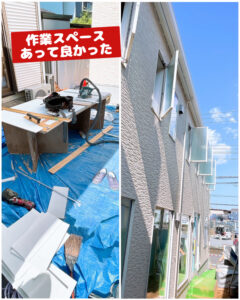こんにちは。
千葉市若葉区の原田歯科クリニックの原田です。
最近、ある方に勧められて「Die with ZERO」という本を読みました。アメリカの起業家が書いたこの本は、簡単に言えば「人生の終わりにはお金を使いきるべきだ」という内容です。働きすぎて家族との時間を犠牲にするのではなく、若いうちから「経験」にお金と時間を投資し、後悔のない人生を送ろうという主張です。
多くの内容には納得できます。確かに、必要以上に働いて体を壊したり、大切な人との時間を失うのは本末転倒でしょう。でも、読みながら私は思いました。「これはアメリカ的な価値観だな」と。
日本では「働くこと」に対しての価値観が少し違います。私は特別な信仰心があるわけではないですが、仏教徒で、冠婚葬祭は仏式で行いますし、お正月は神社にお参りに行く、ごく普通の日本人です。
一方で、欧米ではキリスト教的な価値観が根底にあるように思います。中でもプロテスタントでは、労働は本来「罰」としての意味合いをもっており、できるだけ短時間で効率よく働き、自由な時間に人生の価値を見出す傾向があるようです。
私は歯科医院をゼロから立ち上げました。最初は借金もあり、開業したばかりの頃は、毎日10時間以上、土日も休まず働いていました。休みの日には学会やセミナーに参加して、技術や知識を磨く。日曜日に子どもの学校行事があっても、行けなかったこともあります。
しかし、それに後悔は一切ありません。
本心を隠して「子どもの参観日に行けなかったことを後悔しています」と言えば、もっと共感を得られるのかもしれません。でも私はそういう“優等生的な答え”ではなく、本音で言います。私は歯科医療を通じて地域の人々の健康に貢献したい、患者さんの笑顔を守りたいという想いで全力で仕事をしてきました。その道のりで築き上げた来院者様の健康、スタッフとの絆や医院の成長は、私の大きな誇りです。
もちろん、「Die with ZERO」のように、人生の時間の使い方やお金の価値を問い直す視点はとても重要だと思います。人はいつか死ぬのだから、「貯めるだけの人生」ではなく、「経験する人生」に重きを置くべき、という提案には大いに共感します。
ですが「お金はゼロで死ね」とまでは、私には言い切れません。自分の家族や、次の世代への継承、または地域への貢献など、お金には使い道がいろいろありますし、何より「働くこと」そのものが楽しいという人もいます。
私にとって「働くこと」は罰ではなく、人生の一部です。家に帰ってからも、医院の運営やマネジメントのことを考えたり、日曜日に学会へ行ったりするのも、苦ではありません。むしろ、それが自分の成長になり、仲間や患者さんの幸せにつながっていくのが嬉しいのです。
人それぞれ価値観は違います。「Die with ZERO」に書かれていたことも、大切な視点として受け止めつつ、私自身の歩んできた道を否定するものではないということを、改めて感じました。
おかげさまで後継者も決まりました。
これからも1000年間あなたの家族、ご子孫の美と健康と幸福にお役に立ちます。スウェーデンやフィンランドと同じレベルの歯科医療を提供します。
千葉で歯医者をお探しの方、私たちは「健康で美しく、幸せに生きる」ことをサポートするため、日々努力を重ねています。健康な歯を維持することは、人生の豊かさにつながります。ぜひお気軽にご相談ください。
>>>>>>>>>>>>>>>
[From a Dentist in Chiba] Reflections on *Die with ZERO*
Hello, this is Dr. Harada from Harada Dental Clinic in Wakaba Ward, Chiba City.
Recently, I read a book titled *Die with ZERO* recommended to me by an acquaintance. Written by an American entrepreneur, the book’s core message is simple: “Use up your money before you die.” Instead of working excessively and sacrificing precious time with family, it encourages people to invest both money and time into “experiences” from a younger age to live a life with no regrets.
Much of what the author says resonated with me. It’s certainly true that overworking to the point of damaging one’s health or losing time with loved ones defeats the purpose of life. Still, as I read the book, I couldn’t help but think, “This perspective is very American.”
In Japan, we hold different cultural values around work. While I’m not particularly religious, I identify as a Buddhist, attend temples for life events, and visit shrines on New Year’s Day—just like many ordinary Japanese people.
In contrast, Western culture—especially Protestant values—often views labor as a kind of “punishment.” There seems to be an emphasis on working efficiently in short bursts, then finding meaning in one’s personal time and freedom.
I started my dental clinic from scratch. In the early days, I had debts to repay and worked more than 10 hours a day, including weekends. On my days off, I attended seminars and academic meetings to improve my skills and knowledge. There were times I couldn’t attend my child’s school events on Sundays.
But I have zero regrets.
I suppose I could gain more sympathy if I said, “I regret missing those school events.” But I’d rather speak honestly. I have devoted myself wholeheartedly to dentistry, with the desire to support the health and smiles of our community. The progress we’ve made—our patients’ well-being, the bonds with my staff, and the growth of our clinic—are sources of great pride for me.
That said, *Die with ZERO* offers valuable insights into how we view time and money in life. The idea that we should focus less on accumulating wealth and more on creating experiences is one I strongly agree with.
However, I can’t fully endorse the idea of “dying with zero.” Money can be used to support your family, contribute to your community, and leave a legacy for the next generation. And for some of us, working itself is a joy.
To me, work isn’t a punishment—it’s part of my life. I don’t mind thinking about clinic operations after hours or attending conferences on weekends. In fact, these things help me grow and bring happiness to those around me, which I find fulfilling.
Everyone’s values are different. The message of *Die with ZERO* is important and thought-provoking, but it doesn’t invalidate the path I’ve chosen.
Fortunately, I have now found a successor to carry on the clinic’s mission.
At Harada Dental Clinic, we aim to contribute to the beauty, health, and happiness of your family for the next 1,000 years. We strive to offer dental care on par with the best in Sweden and Finland.
If you’re looking for a dentist in Chiba, we’re here to support your journey toward living a healthy, beautiful, and fulfilling life. Maintaining healthy teeth plays a major role in overall life satisfaction. Please feel free to reach out to us anytime.
—
*【来自千叶的牙医分享】阅读《Die with ZERO》后的感想*
大家好,我是千叶市若叶区原田齿科诊所的原田院长。
最近,在朋友的推荐下,我读了一本书,名字叫《Die with ZERO》(中文译为“死时归零”)。这本书由一位美国企业家撰写,核心理念是:“在人生终点时,应该刚好把钱用完。”作者主张不要因为工作过度而牺牲家庭时间,而是要从年轻时起,将时间和金钱投资于“体验”,活出无悔人生。
这本书中很多观点让我非常认同。确实,过度工作导致身体出问题、失去与重要的人共度时光,这样的生活本末倒置。但在阅读过程中,我也产生了一个想法:“这真是很典型的美国式价值观啊。”
在日本,人们对“工作”的看法与美国略有不同。我并不是一个特别有信仰的人,但我是佛教徒,婚丧喜庆通常采用佛式仪式,元旦也会去神社参拜,是一个再普通不过的日本人。
而在欧美,特别是新教文化中,劳动原本带有“惩罚”的含义,因此他们更倾向于在短时间内高效工作,并在自由时间中寻找人生价值。
我从零开始创办原田齿科诊所。刚开业时,我背负贷款,每天工作超过10小时,几乎全年无休。休息日也常常参加学会或研讨会,提升技术和知识。有时候,甚至因为工作错过了孩子的学校活动。
但我对此毫无悔意。
或许如果我说“错过孩子的家长会让我后悔”,会更容易获得他人的共鸣。但我不想说那种“标准答案”。我发自内心地认为:我愿意全力以赴投入牙科事业,守护患者的笑容和健康。这一路走来,能看到患者恢复健康、与团队建立的信任关系,以及诊所的成长,这些是我引以为傲的人生成果。
当然,《Die with ZERO》中提出的“如何分配人生时间与金钱”的视角非常重要。我也赞同,人生有限,不应只是“储蓄的人生”,而应是“体验的人生”。
但我不能完全接受“死时归零”的概念。金钱不仅可以用于自己,也可以用于家庭、下一代,乃至社区的贡献。而且,有些人就是单纯地热爱工作。
对我来说,“工作”并不是惩罚,而是我人生的一部分。即使回到家,我也会思考诊所的经营和管理问题;周日参加研讨会,对我来说也不是负担,反而是一种成长,同时让我能带给患者和伙伴更多幸福。
每个人的价值观都不同。我认为,《Die with ZERO》提出的观点值得参考,但这并不否定我选择的人生道路。
幸运的是,我已经找到了可靠的接班人。
我们原田齿科诊所的目标,是在未来1000年里,为您的家庭和后代的“美丽、健康与幸福”贡献力量。我们将继续努力,提供与瑞典和芬兰同等级别的高质量牙科医疗。
如果您正在千叶寻找牙医,我们将致力于成为您“健康、美丽、幸福人生”的支持者。健康的牙齿是美好生活的基石,欢迎随时来咨询我们。
—
【來自千葉的牙醫分享】閱讀《Die with ZERO》後的感想
大家好,我是千葉市若葉區原田齒科診所的原田院長。
最近,在朋友的推薦下,我讀了一本書,名字叫《Die with ZERO》(直譯為「死時歸零」)。這本書由一位美國企業家撰寫,主要主張是:「人生的終點應該是將財富用盡。」作者提倡不要為了工作而犧牲與家人共處的時間,而應從年輕時開始將金錢和時間投資在「經驗」上,過一個無悔的人生。
我對書中大多數的內容都表示認同。確實,過度工作導致健康惡化或失去與摯愛相處的時光,這並非明智之舉。然而,在閱讀的過程中,我也不禁想到:「這真的是一種美國式的價值觀啊。」
在日本,對於「工作」的看法與美國略有不同。我不是一個特別有宗教信仰的人,但我是佛教徒,婚喪喜慶多以佛式進行,元旦也會去神社參拜,是一個十分普通的日本人。
而在歐美,尤其是受到新教影響的文化中,勞動被視為「懲罰」,因此他們追求高效率、短時間的工作方式,並重視在工作之外尋找人生的價值。
我從零開始創辦了原田齒科診所。創業初期,我背負貸款,每天工作超過10小時,幾乎全年無休。休假日也經常參加學會或研討會以精進技術與知識。有時候,甚至因工作無法參加孩子的學校活動。
儘管如此,我毫無悔意。
或許若我說「錯過孩子的學校活動讓我後悔」,會更容易引起他人的共鳴。但我不想說那些「模範答案」。我真心認為,正因為我致力於牙科醫療,守護病患的健康與笑容,才讓我的人生充滿價值。診所一路走來的發展、與工作夥伴建立的羈絆,都是我無比自豪的成果。
當然,《Die with ZERO》中提出的「重新審視時間與金錢的價值」這一觀點是非常重要的。我也非常贊同:人生有限,與其積蓄不斷,不如注重實際的體驗與回憶。
不過,對我而言,並不完全能接受「死時歸零」的主張。金錢還有許多重要的用途,例如留給家人、回饋社會或投資未來世代。而且,也有人從工作中獲得無限的快樂。
對我來說,「工作」不是一種懲罰,而是我人生的一部分。即使下班後,我也會思考診所的經營與管理問題;週日去參加研討會也不是負擔,而是一種充實和成長,並能帶給病患與同事更多幸福。
每個人對人生的看法都不相同。我相信《Die with ZERO》的觀點值得參考,但同時我也更加確信,這並不否定我所走過的人生道路。
值得高興的是,我已經找到了值得信賴的接班人。
我們原田齒科診所的目標,是在未來1000年都能為您與您家人的「美、健康與幸福」盡一份心力。我們將繼續努力,提供與瑞典及芬蘭同等水準的高品質牙科醫療服務。
如果您正在千葉尋找牙醫,我們將致力於成為您「健康、美麗、幸福人生」的最佳後盾。健康的牙齒是豐富人生的基礎,歡迎隨時與我們聯繫。




